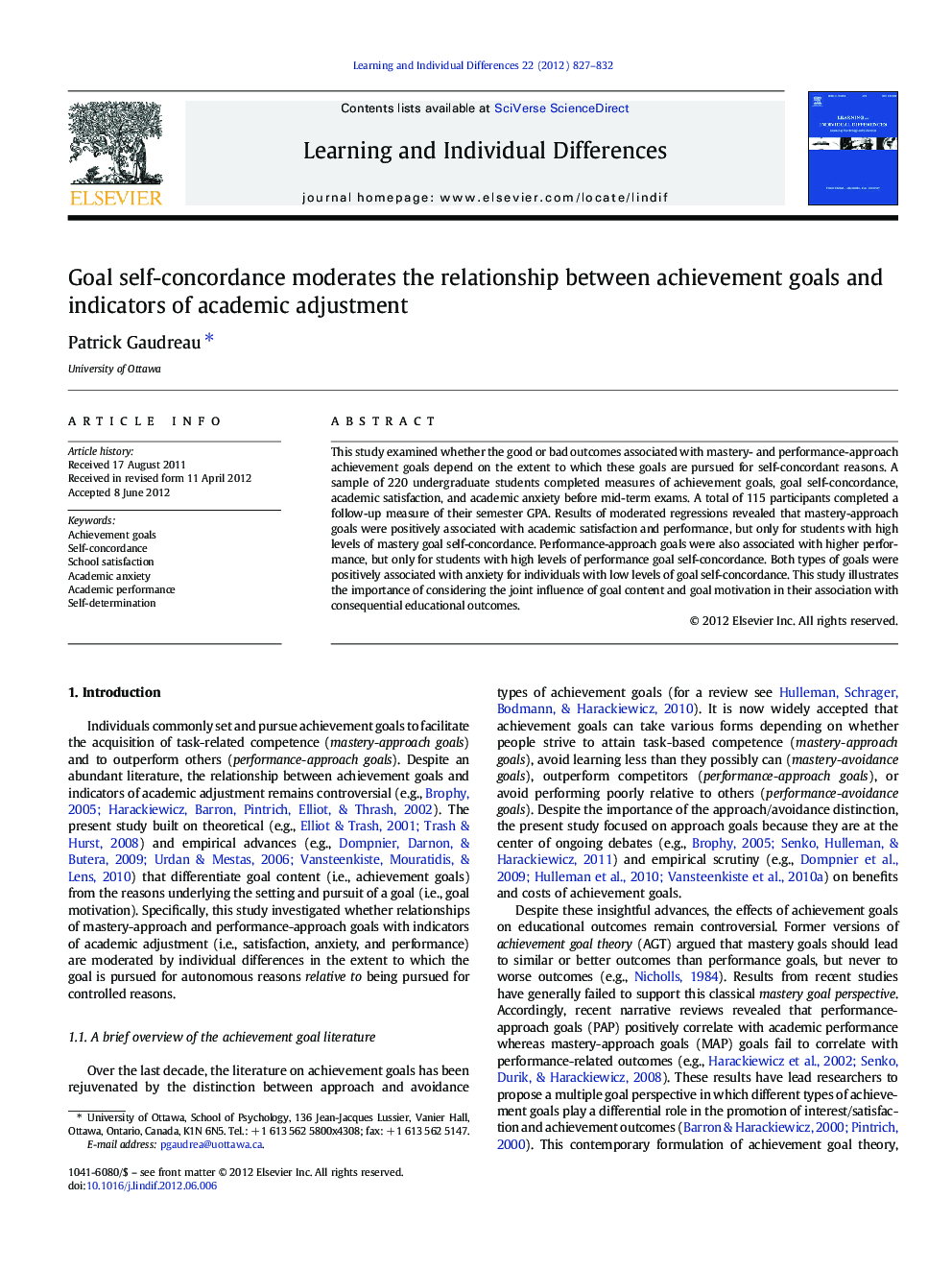| Article ID | Journal | Published Year | Pages | File Type |
|---|---|---|---|---|
| 364867 | Learning and Individual Differences | 2012 | 6 Pages |
This study examined whether the good or bad outcomes associated with mastery- and performance-approach achievement goals depend on the extent to which these goals are pursued for self-concordant reasons. A sample of 220 undergraduate students completed measures of achievement goals, goal self-concordance, academic satisfaction, and academic anxiety before mid-term exams. A total of 115 participants completed a follow-up measure of their semester GPA. Results of moderated regressions revealed that mastery-approach goals were positively associated with academic satisfaction and performance, but only for students with high levels of mastery goal self-concordance. Performance-approach goals were also associated with higher performance, but only for students with high levels of performance goal self-concordance. Both types of goals were positively associated with anxiety for individuals with low levels of goal self-concordance. This study illustrates the importance of considering the joint influence of goal content and goal motivation in their association with consequential educational outcomes.
► Self-concordance moderated the relation between achievement goals and academic outcomes. ► Mastery goals pursued for self-concordant reasons favored both academic satisfaction and performance. ► Performance goals enhanced academic performance only when pursued for self-concordant reasons. ► Performance and mastery goals increased anxiety when pursued with low levels of goal self-concordance.
